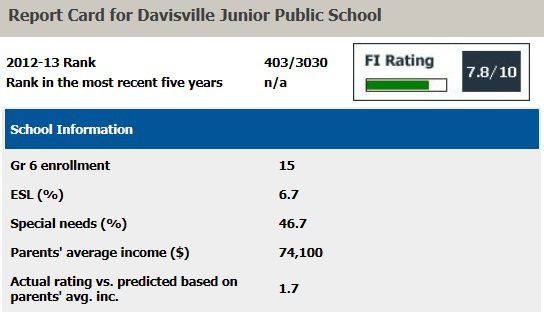This will be a HUGE topic and bone of contention for some people, and others might skip this blog post entirely.
This topic gets people’s backs up in many, many different ways. It brings political, social, and economic beliefs and opinions together, and a person’s feelings on public schools and educations will undoubtedly come into play.
Then there’s the topic of the school rankings themselves, and whether they’re biased, unfair, or exactly what people are looking for.
Let’s discuss, shall we?

“Fraser Institute”
Those two words, as soon as you read them, made you feel a certain way, did they not?
What did you feel when you read those words? What was your reaction?
Some people see those words, and they get a slight tingle. They’re searching for houses actively, they’re pregnant and expecting, or perhaps have a little one at home already. They’re completely immersed in the real estate market, MLS, and of course – the Fraser Institute rankings for schools they have their eyes on!
Other people see those words, and they get sigh. They feel overwhelmed with a sense of frustration, some resentment, and maybe even some anger. They have kids of their own, and their children and their children’s futures are most important aspects of their lives. Education is important, and these folks are sick and tired of reading biased rankings by the Fraser Institute that puts down their children’s schools, or simply evaluates all the wrong things.
Which side of the fence are you on? Or have you already skipped this blog post and moved onto Photos Of The Week?
Buying a house in Toronto is not an easy task, nor is it in any way “fun.”
I wish it were fun, and I wish it were in any way pleasurable, but Toronto’s market for single family homes is hyper-competitive, and I truly don’t see it changing any time soon. When semi-detached houses on Rhodes Avenue are getting 26 offers, clearly times have changed!
I try my best to provide an accurate description of the market, and market conditions, on my blog and in my Pick5 feature, and one of the things I’ve started doing in recent years is putting a focus on school districts.
People buy homes, conceivably, to have a family.
And if you’re going to have a family, you’re going to send your kids to school……..I hope…
So it goes without saying, or at least it should, that one of the major selling features of a home these days is the school district that the home lays within.
We all have different objectives for our housing search.
We want a certain number of bedrooms and bathrooms, parking, a garage, curb appeal, something renovated, or something unrenovated that we can put work into. Perhaps access to TTC is important, or maybe it’s 2-car parking that we desire. Maybe proximity to a church, park, library, or dog-walk is important as well, or maybe none of the above apply.
But if I had to pick one criteria that buyers have suddenly vaulted to the top of their wish-lists over the last few years, it’s school districts. And that is why I want to talk about school rankings.
Every time I film a Pick5 episode, I talk about the school districts that the homes are in, and what those schools rank according to the Fraser Institute.
This has resulted in several emails from viewers – not angry emails, but emails nonetheless, pointing out the faults within the Fraser Institute rankings, and as recent as yesterday – providing an alternative.
You can type “Fraser Institute” into Google, and the auto-complete will highlight the word “criticism” for you.
Teachers, parents, and even those with no vested interest in education, have criticized the Fraser Institute rankings.
I think any ranking system, anywhere, would come under fire. Just go online and read what people write in restaurant reviews, or movie forums, and you’ll see that everybody has an opinion.
But with something as important as childhood education, and in a day when Toronto’s housing prices are tied closely with school rankings, perhaps it’s important to dig deeper.
What would you say is important in a school?
I don’t have kids, but off the top of my head:
-standardized test scores
-class sizes
-tenure of principal
-average tenure of teachers
-extra-curricular programs
-facilities, and age/condition
-special features (ie. field turf?)
What else?
I’m not a parent – so please show me what I’m missing.
You all know how I feel about education today. I rant about this on my blog all the time.
In a nutshell, I feel that since I was attending elementary school in the 1980’s, we’ve seen a shift in educational policies towards averaging out the children. It’s a bit of a socialist ideal – removing honour rolls, giving out participation ribbons, not allowing for late marks, giving children second and third chances – and this thing called “credit resuscitation,” where after getting 11% in grade ten geography, they can do extra work in the last week of June to raise their mark to 50%.
I believe, mostly at the high school level, that many schools take accountability and responsibility away from the kids.
Today’s generation is so screwed up because the people in charge have allowed kids to coast, with no accountability for their actions, and no need to learn work ethic, and no understanding of what goes on in the real world, once they’re in their 20’s.
So what I would look for in a school, as a parent, when the time comes, may be entirely different from what you want.
If my child was skipping school to smoke pot every single day, not handing in assignments, not taking tests, not doing his work, and getting 31% in grade eleven science, I would be appalled if some socialist guidance councilor took my child aside, said “there there,” and gave my child a second chance to do 9-month’s worth of work in a week, to pass on to the next level. I would want my child to fail, repeat, and experience the consequences of his actions. That would be my decision as a parent, and it shouldn’t be up to some dreamer who thinks “everybody is the same.”
Agree, or disagree. But I feel for most people, it will be the former.
So, with my rant out of the way, let me tell you how I feel about the Fraser Institute rankings.
I think that despite the criticism, they are the most relied-upon, and biggest “name” ranking system out there.
I think that they are, to a degree, a measure of wealth of the households in the area, and they don’t take into consideration a slew of things I would want to know about, such as the facilities of the school, the programs offered, and the quality of the teachers.
But having said that, I see a ton of value in the rankings, and so long as you’re willing to dig a little deeper, you’ll get what you need.
As for the criticism, here’s an email I received about a month ago, after doing a Pick5 which highlighted a school that got very poor rankings:
“I’m a teacher that has worked at many schools across the city, and just started working at (SCHOOL) this year. It has a low ranking probably because of the large population of new immigrants and their understandably low scores on the standardized tests. That’s the unfortunate thing when using those rankings – that’s all they tell you, standardized score results. Many of the kids that have lived in Canada their whole life are successful on those tests at this school, but the score doesn’t show that. This school has the best teachers I’ve been lucky enough to learn from and the nicest and most appreciative kids I’ve ever worked with. The diversity, amazing initiatives and programs, and caring people is what makes this an amazing school that any kid would benefit from going to.”
I don’t disagree with what’s written above, but I have to be completely honest and say that this is exactly what some people are looking for from the Fraser Institute.
Do I have to address the elephant in the room? Can I say this without being labelled an insensitive bigot?
A client of mine recently turned down a property because it fell within a certain school district, that stated on the school’s TDSB webpage: “The school serves almost 280 students of multicultural background. Approximately one half of the children’s first language is Cantonese or Mandarin.”
He said very honestly and matter-of-factly, “I don’t want my child attending an elementary school where a good portion of time is dedicated to learning English.”
Do you blame him?
If you grew up in Toronto, and your family spoke English, and your six-year-old child speaks English, do you want your child attending school where English is taught to other kids who don’t speak it as a first language?
It’s like sending your child to hockey camp, and they spend days at a time focusing on goalie skills, when your child is a right-winger.
I received another email on Monday, from a teacher who suggested I look at a new website called www.peopleforeducation.ca, which is trying to provide an alternative to the Fraser Institute rankings. She emailed me:
“The article basically explains that what the Fraser Institute is actually measuring is the number of gifted students and how much the parents earn in that area.”
She’s not wrong.
The top twenty elementary schools, ranked by the Fraser Institute have two things in common according to the article:
1) a significantly higher proportion of gifted students
2) a significantly higher proportion of parents with a university education
But do we really need an article to tell us this? Shouldn’t this be common knowledge?
Criticisms of the Fraser Institute rankings suggest that too much of a focus is put on the percentage of special-needs students, the percentage of ESL students, and the average income of the household. But it’s not like the Fraser Institute is hiding this! Their ranking page for each school has a box that looks like this:

So my question is this: is there anything wrong with a prospective home-buyer, planning their children’s education, wanting to know the percentage of ESL students, percentage of special needs students, and average income of the parents?
If you think there IS something wrong with that, then we can agree to disagree.
Every buyer has a different set of criteria for a home. You might put more importance on “move-in-ready,” and another buyer might weigh the overall size of the house more heavily.
Is educational any different?
There are specialty schools for sports and arts, aren’t there?
So doesn’t that mean that parents have different criteria for their children’s educational goals, and look for different features and demographics in a school?
Some people think of a French Immersion program somehow being special, elite, “upper class,” and representing some sort of societal benchmark, when other parents don’t care if their kids can speak French, so long as they can excel in reading, writing, math, and find room to be creative.
There’s a direct correlation between real estate prices and schools with French Immerson programs. Withrow Avenue P.S. actually has lower school rankings by the Fraser Institute than neighbouring Pape Avenue. P.S., but home prices in the Withrow district are higher. Maybe this is the French Immersion program, or maybe it’s just some immeasurable status symbol attributed to Withrow.
But it’s interesting to note that the average income for Withrow, which ranks an 8.3/10, is $99,200, whereas the average income for Pape, which ranks a 9.0/10, is $74,700.
So there are always exceptions to the rule.
I don’t think there could be such a thing as a “perfect ranking system,” and I have no doubt that the Fraser Institute rankings are somewhat incomplete.
But they’re the best we’ve got, the most relied-upon, and they have the largest following and market share of any school ranking system.
So would you purchase a $900,000 asset and plant roots in a given neighbourhood, all based on what a think-tank like Fraser says about a school across the street?































Long Time Realtor
at 8:44 am
My wife and I are both university grads (Western), and we never once gave a single solitary thought to the school distict when buying a home. Both of our children are now also university grads (McMaster & U of T).
Whatever happened to personal responsibility? Blaming the system, the school, etc. seems to be the name of the game.
It is up to the student to excel within the school, not the other way around.
reluctanttorontonian
at 3:48 pm
For what valid purpose would your client need to know how many “special needs” students there are in a school? That’s none of their business and it’s not likely to impact their perfect little Madison or Aiden. This is the type of thing that makes these types of middle class home buyers out to be the well.. BLANK.. that they are.
My husband is a professor and I have a phd. We hare mixed race children and diversity is very important to us (even though socio-economically we “fit” with a certain class of white folk, that’s not our priority). We bought our home seven years ago (when I was pregnant and had a one year old) without ever looking at school rankings. We were more interested in the house itself and proximity to other amenities.
Our kids ended up at a “downtown” school nearby which is public but alternative, is housed in a shady bit of the city, very near a large homeless shelter and other such places that many would not want in their backyards I presume. It’s fine. They don’t have a fancy track, they don’t have a swimming pool etc. They get on with it fine. And they’re smart, are in classes with kids whose parents come from all over the world and in that sense their friends’ realities resemble theirs. We could have selected a “good” school and tried to buy there (and we likely could have at the time) but that would have deprived them of all of the benefits of being with the kids they’re with. I would hate for them to be in a homogenous school full of one-upping helicoptering parents and smug, entitled kids (I went to one of those growing up). So, there you have it. I’d never give a second thought to the Frasier Institute’s ranking and I shudder to think that so many do. To each their own..
BillyO
at 8:58 am
It’ll be interesting to see what becomes of the ‘downtown’ schools as areas become more gentrified and more families satay in the core and raise a family, or how the school planned for Cityplace turns once it’s built.
Amelia
at 9:18 am
Thanks for the article. I was thinking on exactly this topic yesterday, and you’ve answered a lot for me. Thanks David.
A few thoughts …
It is important for parents to remember that you don’t have to live in a particular school district to have your child accepted as a student to that school. Perhaps elevated home values in particular neighbourhoods speak to a need for parents to guarantee their child’s acceptance into a particular school?
I think the Fraser institute does provide important information but it shouldn’t be used in isolation. I personally wouldn’t want to send my (unborn) children to a school populated by rich, spoiled, entitled, lazy kids that I assume are born to the upper classes. 😉 The Fraser rankings would certainly come in handy to weed those out!
Kidding aside, visit the schools you think you’re interested in, talk to the principal, teachers, parents. You know when you walk into that home and immediately you KNOW “this is it.” Schools are like that too. Walk through the doors of half a dozen schools and you’ll get a feel for where your child will fit in, be comfortable and get the best education.
jeff316
at 9:21 am
A useful piece of advice from our real estate agent was to remind us that school catchment boundaries are not immune to changes.
Geoff
at 9:31 am
@ Long time realtor – I get what you’re saying but on the other hand a big part of a new purchase is resale value, so I’d factor that into purchasing decisions, personally.
My problem as I noted in an email to David is that the Fraser Institute doesn’t rank all the schools in the city; in my neighbourhood (lawrence/underhill, generally regarded as a nice area where houses sell for $750K+) they don’t rank 3 of the elementary schools in my area at all. So I wonder what other schools they aren’t ranking , personally.
In any case my wife and I have solved the problem – by staying put, we figure we can send our son to private school where we have full control over his experience, and while it will likely cost us about $250,000 over 10 years, we’re still ahead of buying a house and increasing our mortgage by $400,000 (far more ahead once you include interest paid on that $400K increase).
wikito
at 12:02 pm
Argue all you want about standardized tests, but I see the question as follows:
1. Do I want my child to go to a school that performs well on standardized tests
2. Do I want my child to go to a school that performs poorly on standardized tests
if i can afford 1 great. if i can’t afford 1, then i can come up with “logical” reasons why 2 is actually better than 1, but the scores don’t reflect that.
DTbiker
at 12:24 pm
I happened to have gone to Pape Ave. School in the 90’s ( when they celebrated their centennial) and I can tell you that there were lots of kids there that spoke cantonese/mandarin as their first language. Just to continue on the…controversial branch, a lot of these classmates of mine are now successful professionals (yes the same cantonese/mandarin speaking ones). I later moved to Scarborough and attended Dr.Norman Bethune CI where there were even more cantonese/mandarin speaking students and I can tell that my classmates from there are generally even more successful then the ones from Pape.
So it just goes to show that not schools filled with immigrants are a bad thing. In my case, we motivated each other to do better and the general atmosphere at school was to learn and do well so that we can find a better job that pays more than what our parents made.
Krupo
at 12:31 am
Excellent point – my school had 1/5 to 1/4 ESL kids and a fair (or better than fair) proportion of the “ESL” crowd went on to university etc.
At the same time, a lot of the “white Canadian” kids may or may not have even finished high school… ahem.
Jonathan
at 2:09 pm
It’s also important to note that school rankings are not set in stone either. You could buy in an area looking to start a family, then 4-5 years later the school rankings have changed completely. Anything is possible!
Monica
at 1:40 am
If an educated, supportive family can afford a nice house in a very good neighbourhood with a high school ranking, their children will likely have fewer special needs and will likely do very well in school. This (happening many times over with many highly educated, high-income families) will likely drive the rankings higher.
In contrast, house prices in bad neighbourhoods with schools with very low rankings will attract less educated families with low incomes, much more likely to have children with special needs who will struggle in school. This would likely drive the rankings lower.
It seems safe to say that if a family moves to a neighbourood where the school is ranked highly, this school will continue to be ranked highly for at least a few decades.
M
at 6:50 pm
There’s an interesting quirk visible in the Fraser rankings that highlights the streaming impact of french immersion. Standardised testing is performed in grade 3 & grade 6. A school with immersion can decide to opt out the immersion students from the english language (but not math) components of the grade 3 test. In grade 6, both the core and the immersion students are tested on all subjects. The school that I looked at that did a grade 3 opt-out for immersion showed a huge difference between the grade 3 math vs language scores. But no such difference in grade 6. This seems to imply a large streaming impact (i.e. immersion skims off the brightest students, in schools that offer it).
Dave
at 10:57 pm
The article is based on a common misconception of Fraser. Fraser does not just give scores, they adjust their formula against the household income of the area. Schools can underperform – if neighbourhood is rich and test scores poor there is definitely something up with teaching methods or efficiency in teaching how to take the test. Opposite is true as well. There are Toronto schools in low and middle-income areas that do a much better job of educating students than schools in the Annex or Lawrence park. I share none of their politics but think their rankings are excellent.
Special needs and ESL-dense schools can be gems for students who do not need help in either area – they will have more homework resources and often before or after school language classes in Chinese, Spanish, etc.
Finally, check a few years of scores for schools you are targeting – scores fluctuate a lot. Fraser does have a five year ranking on its site and how much schools have improved or worsened over that time. EQAO site has good breakdowns too.
Having had a child in three elementary schools, with pretty different scores, every school is different – in feel and philosophy. What they learn and how well they learn it is sort of the same.
Schmidtz
at 2:59 pm
THe Public School system is awful.
Just send the kid to private school and be done with it.
moonbeam!
at 2:41 pm
Have to agree with Schmidtz, sorry to say, if one can afford it….
H.B.
at 12:10 pm
Hi Schmidtz,
Just wondering how you came to that conclusion – I agree to some extent – but would love to know if you concluded that from personal experience/children going through the system/etc. I’m working on a project with a group of parents/educators/political figures that seeks to provide advocacy to parents in risk neighbourhoods in regards to their children’s education. Your feedback might provide some new perspective.
Alex
at 4:36 pm
The actual school is nothing compared to parental involvement. If you want your kids to do well then work with them. Read to them when they’re young and instill a love of reading in them. Help them with homework, don’t do it for them, but if they’re simply not understanding a concept then help them understand it. If you ignore your kids and don’t help them when they need it then they aren’t going to do well no matter what school they go to. Whenever I hear about some of the terrible parenting going on in the world I always feel so thankful to have the parents that I do, and I hope that if I have kids then I can do as good a job as my parents did with me and my siblings.
exVancouverite
at 1:50 pm
About 18 years ago, we moved to north Richmond Hill subdivision, around Yonge& Elgin Mills. Prices we low and stayed stagnant for about 4 years, then we had news that Richmond Hill Secondary School (a gifted school) has relocating literally 2 minutes away from us.
House prices shot up and doubled in less than 3 years. And the only reason we could think of was that the contrast between the original low depressed prices and the insane bidding was around the school was literally the ranking of that school.